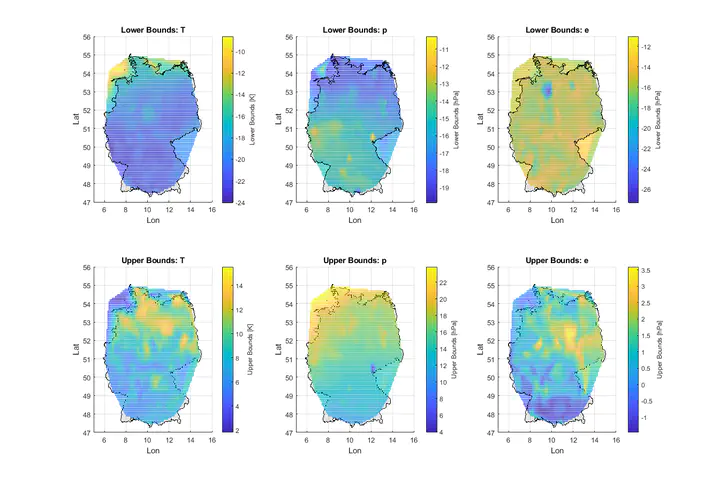Bounding the residual tropospheric error by interval analysis
 Distribution of interval bounds for different meteorological parameters in Germany
Distribution of interval bounds for different meteorological parameters in GermanyAbstract
GNSS integrity monitoring requires proper bounding to characterize all ranging error sources. Unlike classical approaches based on probabilistic assumptions, our alternative integrity approach depends on deterministic interval bounds as inputs. The intrinsically linear uncertainty propagation with intervals is adequate to describe remaining systematic uncertainty, the so-called imprecision.
In this contribution, we make a proposal on how to derive the required intervals in order to quantify and bound the residual error for empirical troposphere models, based on the refined sensitivity analysis via interval arithmetic. We evaluated experimentally the Saastamoinen model with (i) a priori ISO standard atmosphere, and (ii) on-site meteorological measurements from IGS and Deutscher Wetterdienst (DWD) stations as inputs. We obtain consistent and complete enclosure of residual ZPD errors w.r.t IGS ZPD products. Thanks to the DWD dense network, interval maps for meteorological parameters and residual ZPD errors are generated for Germany as by-products. These experimental results and products are finally validated, taking advantage of the high-quality tropospheric delays estimated by the Vienna Ray Tracer. Overall, the results indicate that our strategy based on interval analysis successfully bounds tropospheric model uncertainty. This will contribute to a realistic uncertainty assessment of GNSS-based single point positioning.